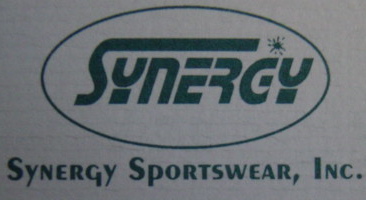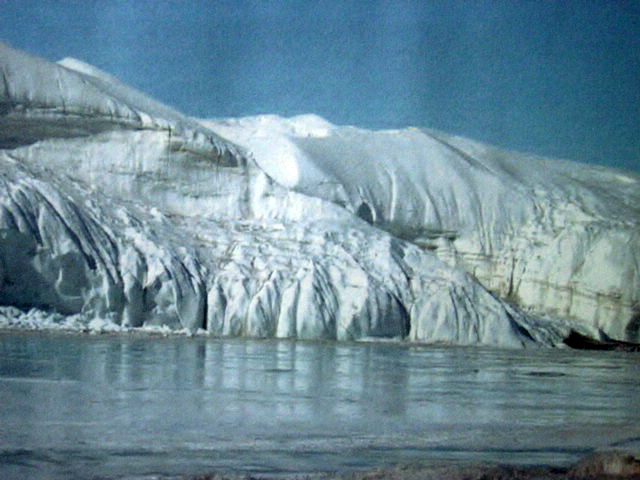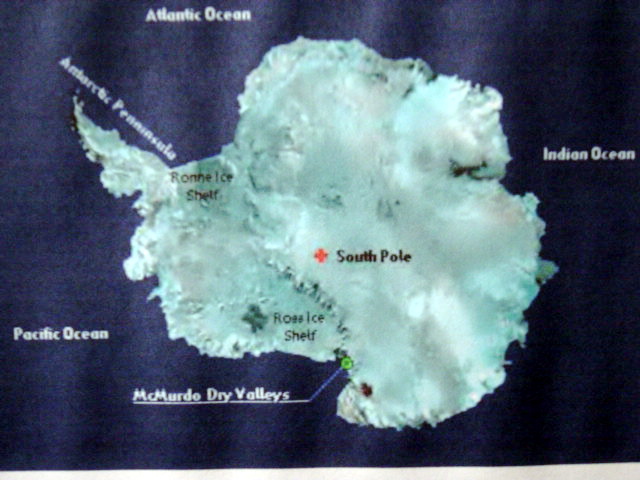
Hello from New Hampshire, former home of the "Old Man of the Mountain!" My name is
Robin Ellwood and I am fortunate to be the eighth grade Science and Adventure
Based Learning teacher at Rye Junior High School. Rye Junior High is located
in the pristine seacoast town of Rye, NH. The school is comprised of
approximately 250 students in grades six through eight.
I have always had an affinity for the sciences. My grandfather was a
physician, my father is a globally respected geologist, my older sister uses
advanced technology in the film industry, my middle sister is a research
scientist studying the molecular basis of cancer, and my youngest sister is a
fourth grade teacher bringing science to the next generation. My life long
interest in biological and environmental systems led me to the University of
New Hampshire where I earned a BA in zoology with a concentration in marine
sciences. Some of my greatest educational experiences occurred while
immersed in field research projects at the Isles of Shoals Marine Laboratory
in the Gulf of Maine. Perhaps my favorite experience was taking an
underwater research class where we conducted underwater transect studies of
Appledore Island.
My passion for teaching and working with adolescents also began in the ocean!
Prior to being a middle school teacher, I was a SCUBA instructor for many
years. Removing people from their natural environment and immersing them in
a "new world" was thrilling. I especially enjoyed working with young adults;
their excitement for seeing and doing new things was inspiring! I then
pursued a Masters degree in Education and took my enthusiasm for science to
the classroom.
There is a certain feeling one gets when you realize you have found your
niche; this is how I felt when I entered Rye Junior High! The students are
motivated, enthusiastic, creative, and just down right fun! My coworkers and
our administration are incredibly supportive and all work hard to transpose
innovative ideas into practices that bolster the educational experiences of
our students. The parents, school board, and community members work hand in
hand with the school to provide wonderful opportunities for students and to
support the overall needs of the school. It is a perfect environment to
bring out the best in education; I am truly fortunate to be part of the Rye
Junior High team!
I began my career at Rye Junior High ten years ago as a sixth grade science
teacher. I now teach eighth grade and enjoy the eighth grade energy,
intellect, and challenges! My curriculum focuses on the geological,
biological, and physical sciences. These topics lend themselves perfectly to
polar studies and to inquiry based projects. The geological history of New
England offers fascinating connections to polar studies. Inquiry based
methods allow students to experience science and develop an understanding of
scientific concepts and the scientific method. My involvement in the TEA
program and in Climate Change workshops has drastically increased my
understanding and appreciation for the global significance of polar research.
It has also allowed me to bring additional research endeavors into my
classroom.
In an effort to encourage students to experience the outdoors and to work
cooperatively, I also created and teach an Adventure Based Learning (ABL)
program. During ABL, students work on cooperative, team building skills and
challenge themselves to stretch their "comfort zones." Students are
presented with problem solving initiatives which require working together to
successfully complete the activity. At the eighth grade level, students also
learn about wilderness safety, first aid, backpacking skills and
preparedness, and are able to go on single and multi-day adventures. Trips
include snorkeling at the Isles of Shoals, backpacking/camping in the White
Mountains, rock climbing, ropes courses, skiing, snow shoeing, and perhaps
the most popular: a three day, two night dog sledding trip in the Mahoosuc
wilderness!
When I'm not working, I enjoy spending quality time with my family and
friends. I love to be outside walking our dog, bird watching, hiking,
camping, skiing, biking, kayaking, or trying to improve my nature photography
skills. I also enjoy traveling, playing guitar, reading, and snuggling with
the cats!
One of my greatest goals is to instill in young people a desire to be life
long learners; challenging themselves, pursuing their interests, exploring
and developing an understanding of the world, and experiencing all they can.
My parcticipation in the TEA program allows me to model the qualities I hope
to develop in my students; it allows me to "practice what I preach"! I am
thrilled to be a part of the TEA field experience and to share my adventures
with students, colleagues, and the community at large. I invite you all to
follow along and share my journey!
My sincere thanks to TEA and NSF for making this opportunity possible!
A very special Thank You to family, friends, school administration, and
colleagues for your continued support and enthusiasm throughout this
marvelous adventure to "The Ice"!
Another Thank You goes to Derek from Synergy for his assistance with the glacier glasses.


The McMurdo Dry Valleys Long-term Ecological Research (LTER) Project
Peter Doran
University of Illinois at Chicago
Field Dates: November 1 - December 5, 2003
The Long-term Ecological Research Program, which is supported by the National Science Foundation, consists of twenty-four research sites located in a variety of ecosystems. Sites range from Toolik Lake in Alaska, Shortgrass Steppe in Colorado, Kanza Prairie in Kansas and Plum Island in Massachusetts, to the Dry Valleys in Antarctica. The goal of the LTER Program is to bolster our understanding of ecosystem dynamics, natural and anthropogenic (human) impacts on ecosystems, and to develop a more comprehensive understanding of how local systems interact with, and influence, continental and global systems. LTER Homepage
The McMurdo Dry Valleys of Antarctica offer a unique ecosystem and an ideal study site. The extreme cold temperatures, low precipitation levels, and salt accumulation create an environment at the edge of its ability to sustain life. The limited species diversity of micro-organisms and their existence in specific locations offer scientists an opportunity to gain an understanding of basic energy, nutrient, and material flow through this ecosystem. Limiting factors of this system, such as water, nutrients, and organic carbon, are in turn controlled by the interactions between the glaciers, streams, lakes, and exposed soils that exist within the Dry Valleys. The delicate nature of the Dry Valleys also makes them sensitive, and responsive, to climatic conditions. Signals indicating a changing climate may, therefore, first be detected in the McMurdo Dry Valleys.
Researchers from numerous scientific disciplines such as geology, glaciology, limnology, microbiology, and chemistry are collaborating to develop a detailed understanding of the McMurdo LTER site McMurdo LTER Homepage. Professor Peter Doran, from the University of Illinois, is parcticularly interested in the limnology (fresh water systems), hydrometeorology (meteorology dealing with all forms of water), and the movement of debris across the ice covered lakes of the Dry Valleys. I am fortunate to be able to join Peteršs team for this years field season. We will be collecting data from, and resetting, several long-term sensors that are located on and in the lakes of the Dry Valleys. We will measure, using a GPS, debris movement across the ice of Lake Hoare. At Lake Vida, the sediment thickness and brine depth will be determined by carrying out seismic experiments. Several samples of water, sediments, and microbial mats will also be collected from nearby streams and lakes for biogeochemical analysis.
Come On Along!

Canada Glacier/Lake Hoare in Taylor Valley
Illustration from MCMLTER

Location of the McMurdo Dry Valleys.
Map from
MCMLTER
 Be sure to check out the images in the journal entries!
Be sure to check out the images in the journal entries!
